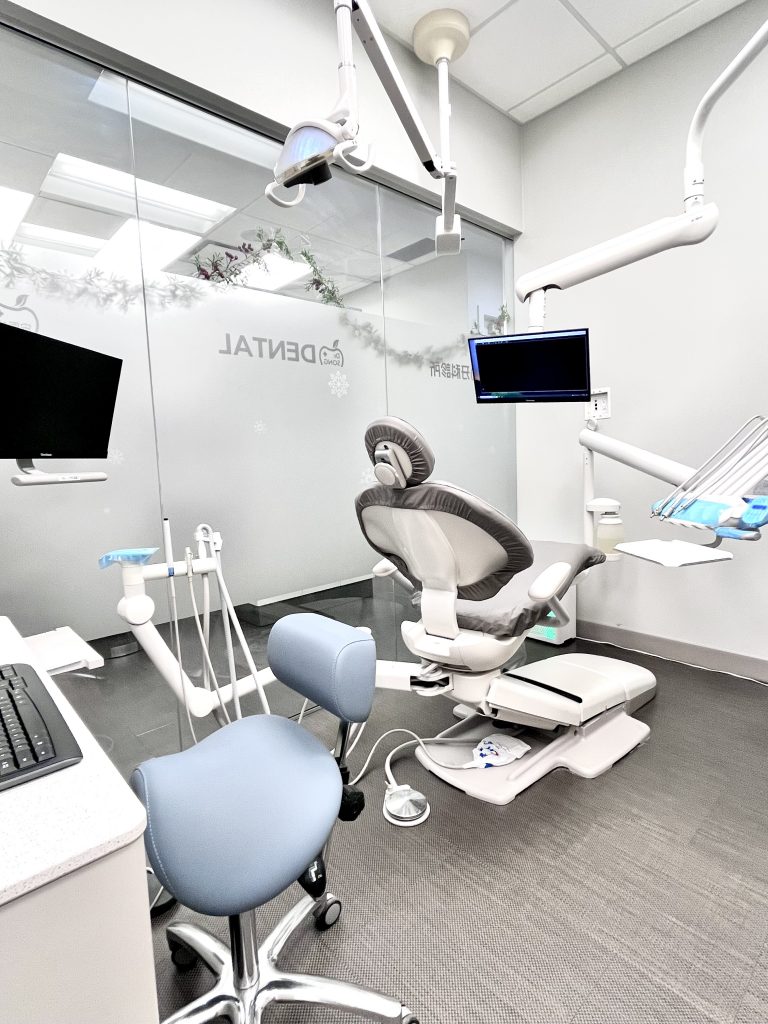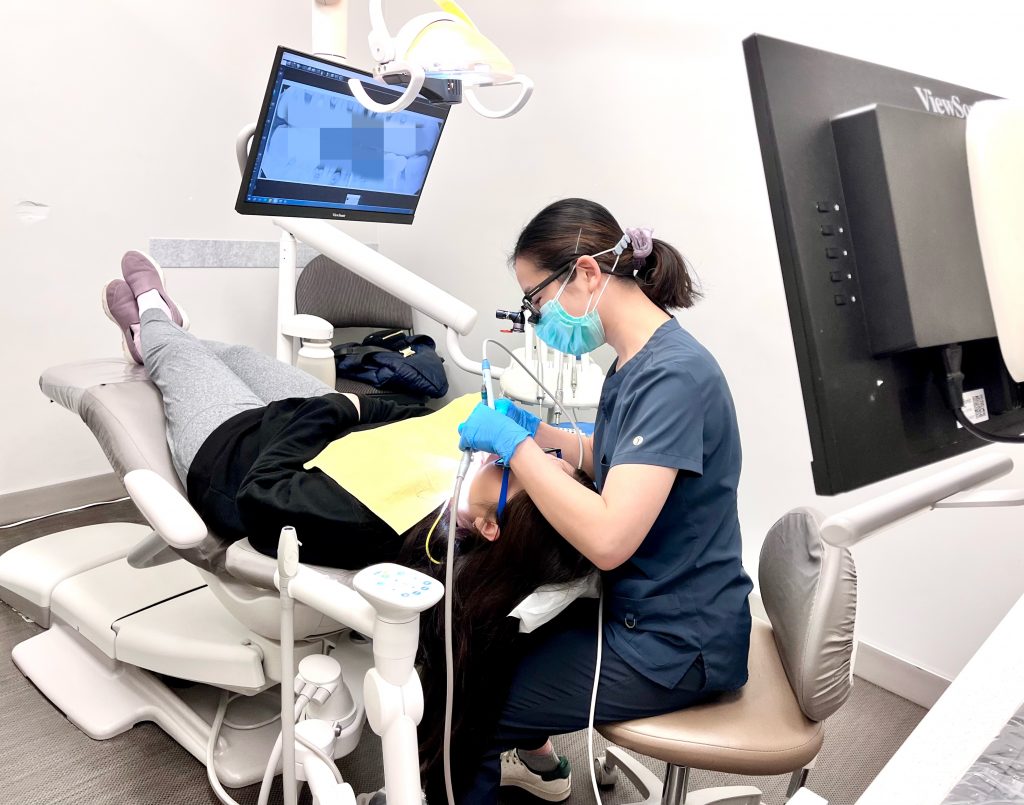What are the benefits of regular dental check-ups?
As the oral cavity’s temperature, humidity, and availability of nutrients are all suitable for bacterial growth, people’s mouths can become a hotbed for bacteria. No matter how well you brush your teeth, there are always unreachable corners which may become the starting point for dental problems. Regular dental check-ups can help with these problems and maintain good oral health. The earlier problems are detected, the smaller they are, the shorter the treatment time, and the lower the cost. This is also why even the most affordable dental insurances cover the cost of regular check-ups. Preventing diseases is always cheaper than treating them, and treating them earlier is always cheaper than later. Regular dental check-ups can:
- Detect early teeth decay and periodontal disease
- Check the condition of existing dentures, various metal or porcelain crowns, bridges, or dental implants, and identify any new problems
- Check if existing fillings are loose or lost
- Check for new tooth defects
- Detect oral tumors early on
- Detect any other oral problems that may affect your overall health
Having regular dental check-ups is especially important for patients with coronary heart disease and hypertension who take long-term antihypertensive drugs, because calcium channel blocker drugs can cause gingival hyperplasia (overgrowth of gums). Patients with diabetes need to pay extra attention to regular periodontal examinations because they are prone to periodontal disease, which can in turn affect blood sugar control if left untreated. People who take long-term anticholinergic drugs (such as atropine, scopolamine) and antipsychotic medications should also have regular dental check-ups because these drugs can cause dry mouth and oral discomfort and disease.
What is professional teeth cleaning?
Professional teeth cleaning, or known as scaling, is a treatment method in which dental professionals use ultrasonic or other instruments to remove tartar, plaque, and pigments from the tooth surface and gums, and polish the tooth surface. Teeth cleaning can make your teeth clean and freshen your breath, prevent tooth decay and periodontal disease, and have a therapeutic effect on early periodontal disease. Daily brushing and flossing cannot replace regular professional cleaning, because no matter how well you brush your teeth at home, there are always blind spots and unreachable corners. The tartar, plaque, and pigments in these blind spots can only be removed by professionals with special instruments.
Is there any harm in teeth cleaning?
Teeth cleaning is just removing the tartar, plaque, and pigments on the tooth surface, so there are only benefits and no harm, just like cleaning the house, washing dishes, or taking a shower every day. The international standard is to have teeth cleaned at least twice a year. The ultrasonic or other instruments used for teeth cleaning does no harm to the teeth. If the gums are relatively healthy, there will be no discomfort after cleaning. On the contrary, you will feel that your teeth are whiter, your breath is fresher, and your teeth are very clean, just like the feeling after taking a shower. If you experience:
- Teeth sensitivity after cleaning
It means that the long-term accumulation of tartar, plaque, and pigments has already caused gum recession, exposing sensitive areas to stimuli. Before cleaning, due to the coverage of tartar and plaque, sensitive areas were isolated from the oral cavity. After cleaning, the coverage of tartar and plaque are removed, and tooth sensitivity symptoms appear. Tooth sensitivity after cleaning is generally reversible, and the duration depends on the degree of gum recession caused by the accumulation of tartar and plaque. The more gum recession, the more severe the sensitivity, and the longer the duration. Severe cases may even cause tooth nerve pain.
- Loose teeth
It indicates that you have not had your teeth cleaned for a long time, and the tartar has caused severe periodontal disease, leading to loose teeth. Before cleaning, due to the thick tartar covering the teeth like a clamp, you will not feel that your teeth are loose. After cleaning, due to the removal of tartar, the loose teeth are exposed. When this happens, you should immediately consult a periodontal specialist for specialized treatment.
- Increased gap between teeth
It is also because the tartar that you did not clean before has caused the recession of your gums. Before cleaning, due to the coverage of tartar or the swelling caused by inflammation, you may not notice that you already have gaps between your teeth. After cleaning, due to the removal of tartar and the reduction in inflammation, you may feel that the gaps between your teeth have increased.
- Bleeding gums
It indicates that the inflammation of your gums was not able to be alleviated by cleaning. You should see a periodontal specialist.
Does teeth cleaning spread disease?
Some people worry that teeth cleaning will spread HIV or hepatitis. If the place where you have your teeth checked is an accredited dental clinic, all disinfection and cross-infection control procedures are carried out according to standards, and you do not need to worry about transmitting diseases during your dental visit. The resistance of the HIV virus to the external environment is relatively weak. After leaving the human body, the HIV virus can only survive for several hours to several days at room temperature. High temperature, dryness, or commonly used chemical cleaning agents and disinfectants (such as iodine, alcohol, or some disinfectants commonly used in hospitals) can kill this virus. Since all instruments entering the oral cavity are soaked in disinfectant and sterilized by high-pressure steam, you will not contract HIV during teeth cleaning, nor will you contract hepatitis, because the hepatitis virus is also inactivated during the disinfection process.


